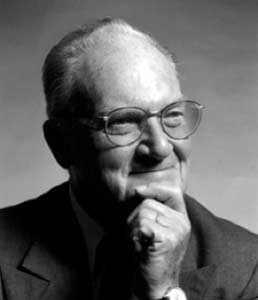By Marcus Braybrooke
Foundational Documents
A Declaration of Oneness for the Human Family
A convergence of world religions towards a “Global Spirituality” suggests the following points in common:
1. The Oneness of the Human Family, irrespective of color, sex, creed, nation, or any other distinctive characteristic.
2. The harmonious place of the individual person in the total order of things, as a unique entity of Divine Origin, with a basic relationship to the universe and eternity.
3. The importance of spiritual exercises, meditation, prayer, contemplation, and the inner search as links between human life and the universe.
4. The existence of an incipient conscience at the heart of humanity which speaks for what is good and against what is bad for the human family, which advocates and fosters understanding, cooperation and altruism instead of division, struggle, and indifference among nations.
5. The value of dedicated service to others, with a compassionate response to human suffering, with special attention to the oppressed and the poor, the handicapped and the elderly, the rejected and the lonely.
6. The duty to give thanks and express gratitude for the abundance of life which has been given to humanity, an abundance not to be selfishly possessed or accumulated, but to be shared and given generously to those who are in need, with a respect for human dignity and a sense of social justice.
7. The need for ecumenical agencies and world religious organizations to foster dialogue and collaborative arrangements, and to bring the resources and inspiration of the religions to bear upon the solution of world problems.
8. A rejection of violence as being contrary to the sanctity and uniqueness of life and a total acceptance of the precept – “Thou shall not kill.”
9. An affirmation of the love of Love and Compassion as the transcending force which alone can break the nemesis of war and establish a planet of peace.
10. The evolutionary task of human life and society to move through the eternal stream of time towards interdependence, communion, and an ever expanding realization of Divinity.
“A Declaration of Oneness for the Human Family,” drafted by Robert Muller and circulated by the Temple of Understanding, did not ignite the global response that other foundational documents have inspired. But it underlined and helped articulate an assumption that drives all interfaith endeavour, that there is a unique, connective oneness to the human family, and that every member of the family deserves respect, dignity, and opportunity. Marcus Braybrooke, who participated in the ‘Oneness’ discussions over the years, tells how the idea developed.
***
A sense of the ‘Oneness of the Human Family’ inspired many interfaith pioneers. At the first Spiritual Summit of the Temple of Understanding - founded by Juliette Hollister - held in India in 1968, Thomas Merton insisted that the interfaith task was not to “discover a new unity. We discover an older unity. My dear brothers, we are already one. But we imagine that we are not. What we have to recover is our original unity. What we have to be is what we are.”1
At a 1985 Spiritual Summit at the Cathedral of St John the Divine in New York “A Declaration of Oneness of the Human Family” was read and endorsed by the religious leaders who were present, including Thich Nhat Hahn, Fr. Thomas Keating, Elie Wiesel, and Rev. Toshio Miyake.

Robert Muller
The Declaration had been drafted by Dr. Robert Muller, who at the time was Assistant Secretary-General of the United Nations. Robert Muller, who was an inspirational enthusiast, was convinced that the French author Andre Malraux was right when he said “the twenty first century will be spiritual or it will not be.” “Getting religions together to define what they have in common and to work together for the benefit of humanity,” was, Muller said, not enough. “I believe that the time has come that spirituality again should play a role in the lives of the people.”
We are called, he said, “to become at long last the cosmic success which the universe has been trying to achieve for billions and billions of years. This is an enormous task ahead of us. And if we do it, then armaments and wars will disappear of themselves, because they make no sense in a cosmos like ours.” 2
Is this a dream that we dare to share? Mairead Maguire, the Irish Nobel Peace Prize Winner tells us to “Dream the impossible, then so live that the dream is fulfilled.”3
1 Quoted by Jim Forest in Living with Wisdom: A Life of Thomas Merton, (Orbis, 1991) 2008 edition, p. 225.
2 World Faiths Insight, New Series 10 Winter 1985, p. 3.
3 Quoted in Marcus Braybrooke, A Heart for the World (O Books, 2005), p. 127.

